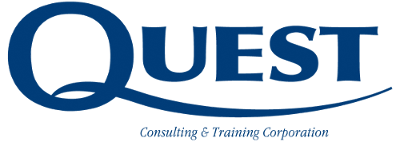Impact on the Organization
Managing a project successfully requires multiple skills. Too often, these skills are learned only through trial and error, at great cost to the project and the organization. This highly interactive program is designed to systematically teach all the fundamentals of project management, including: defining and planning a project, tracking progress, and working successfully with team members. Participants will learn key project management tools, and then practice them in small groups. Once they have mastered these tools, they will participate in a simulation to build a project utilizing what they have learned. Finally, they will practice the leadership skills needed to run a motivated team. The program includes all the templates, checklists, and forms participants will need to successfully launch and manage projects in their own workplaces.
Learning Goals
- Understand the four components of Project Management and their interrelationships
- Produce a project plan that can be used successfully throughout the entire project life cycle
- Produce project documents that will guide successful implementation
- Make necessary course corrections and work with stakeholders
- Work with teams to motivate and ensure accountability
- Use all the tools and forms in a classroom simulation – and later, on the job
The program is designed to be presented within a 24-hour timeframe, but can be tailored to meet specific needs.
Program Outline
Day One
Project Management Concepts
- When is it a “Project”?
- Organizational Culture, Stakeholders, Project Sponsor
- Six system components of Project Management
- Control Systems
- Methods
- Planning Systems
- Information Systems
- Human Systems
- Culture
- The four phases of the Project Life Cycle
- Initiating and Defining
- Project Definition
- Problem Statement
- Project Mission Statement
- Statement of Work (SOW)
- Planning and Estimating
- Project Plan
- Control Systems
- Work Breakdown Structure (WBS)
- Organizational Breakdown Structure (OBS)
- Cost Estimating
- Project Documents
Day Two
The four phases of the Project Life Cycle (continued)
- Scheduling and Producing
- Project Scheduling
- Gantt Chart
- Program Evaluation Review (PERT)
- Network Diagrams
- Project Review and Control
- Earned Value Analysis
- Termination and Evaluation
- Project Termination
- Documentation
- Conveying Lessons Learned
- Major Pitfalls in Project Life Cycle
- Roles and Responsibilities
- Project Team
- Meetings
- Simulation – The group will break into small teams to work on a project, using all the tools that have been presented throughout the first part of the program
Day Three
- Understanding Team Dynamics
- Behavior Styles
- Active Listening
- Giving and Receiving Feedback
- Coaching Discussion
- Accountability
- Time Management
- Ten Ways to Better Manage Projects
